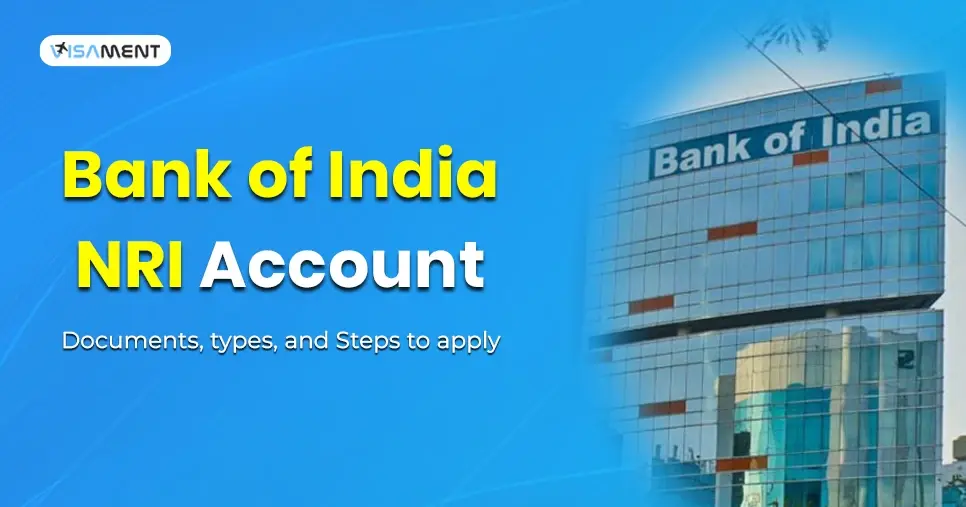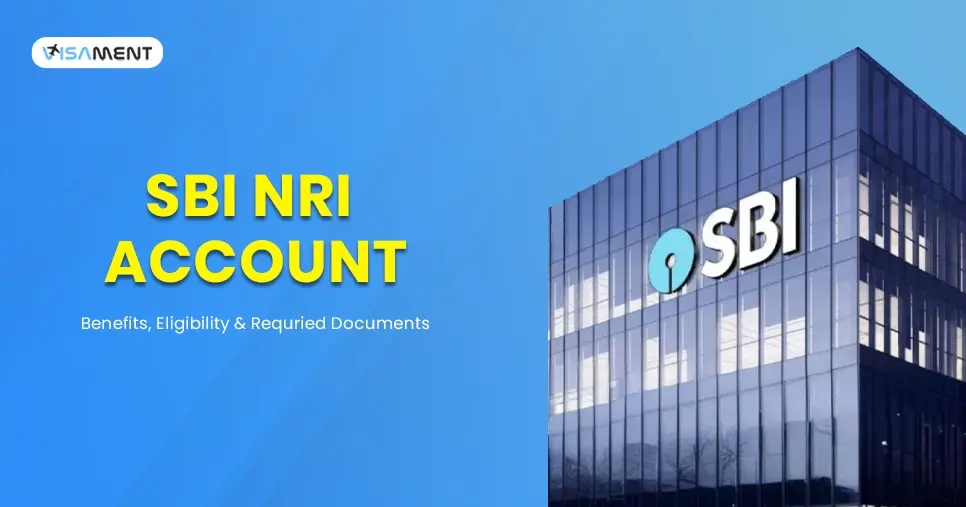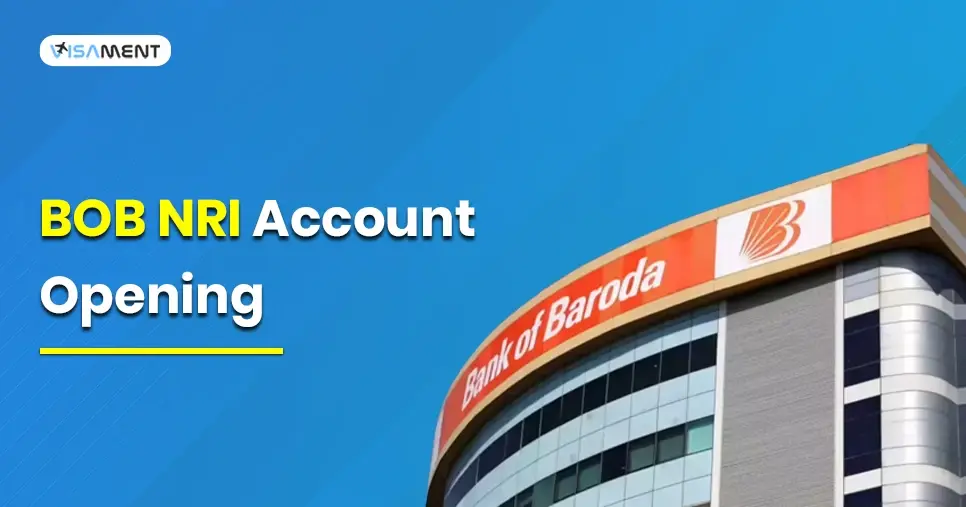If you are an NRI and want to manage your financial transactions in India, then you need to open an NRI account in India. There are three types of NRI accounts which you can open: NRE, NRO, and FCNR accounts. It is very important to understand the difference between these three bank accounts as they are used to cater to different requirements. These bank accounts are useful in fulfilling the financial obligations, investment objectives, and residency plans. The NRIs can open these accounts for their Indian earnings as well as for their foreign earnings.
In this guide, we have explained all three types of NRI accounts and how you can use them as per your requirements. We have also mentioned the types of NRI accounts, their benefits, and the eligibility criteria that you can follow. You can read this blog till the end and choose the accurate NRI account for you.
Key Takeaways
- There are three types of NRI accounts: NRE, NRO, and FCNR bank accounts.
- NRE and FCNR bank accounts are for foreign earnings, and an NRO account is for Indian earnings.
- You need to be an NRI/OCI/PIO to open these NRI accounts.
- They offer tax benefits, high returns, and help NRIs mitigate exchange rate fluctuations.
- If an NRI wants to make any investment in India, then it is necessary to open an NRI account.
What is an NRI Account?
In India, NRIs can open the three types of NRI accounts to facilitate their financial transactions: NRE Account, NRO Account, and FCNR Account.
The individuals who can open these NRI accounts should live outside Indian for more than 120 days in a year and have spent less than 365 days in the past 4 years in India. The residential status of these individuals will be changed to NRI as per the Income Tax Act, 1961. Also, if any Indian citizen leaves the country for employment in a foreign country, then he/she will be declared as an NRI immediately.
Another condition to be an NRI is that the individual must have stayed in India for less than 4 years in the past 10 years. This was a change that was done in the Union Budget 2020; the earlier criteria were 2 years instead of 4 years and 182 days instead of 120 days for the same purpose.
Types of NRI Account
As we have already mentioned, there are three types of NRI accounts that you can open in India. These accounts are Non-Resident External (NRE) Account, Non-Resident Ordinary (NRO) Account, and Foreign Currency Non-Resident (FCNR) Account.
Here, you can understand all three types of NRI accounts in a detailed way:
1. NRE Account
The NRE accounts can be opened by those NRIs who want to manage their earnings coming from a foreign country or the country of their residence. The deposits should be held in Indian Rupees in this bank account.
You can also understand this with an Example:
Ms. Shristi is employed in Paris, France, but her mother stays in India, and she is also a dependent individual. Shristi remits 2000 euros for her mother in her NRE account every month, which is deposited in Indian Rupees. So, if you consider the prevailing exchange rate at that time, which is 1 EUR = 80 INR, you can calculate her remittance in Indian currency, which is Rs 1,60,000.
Say goodbye to paperwork stress! Hassle-free NRE account opening for NRIs
Apply Now2. NRO Account
An NRO account should be opened by those individuals who want to manage their income earned in India. Their deposits should be held in indian denominations. For the deposits, there can be different sources of income, such as dividends, rent, etc. In these accounts, there are no conversion of currency conversion is required.
Let's take an example:
Mr. Ritesh is an NRI who is living in New York, USA, and he has an apartment in Delhi. He has leased this apartment to Mr. Rahul, and to receive the rent earnings from the lease, Ritesh has to open an NRO account in India, in which Rahul will deposit the rent amount.
- No embassy visits required
- Eligibility check & document guidance
- Instant application submission
3. FCNR Account
The FCNR accounts are opened by those individuals who want to make deposits in the currency of their country of residence. They can make the deposits in their FCNR accounts in any one of the prescribed currencies by the RBI.
The currencies in which they can deposit their funds are: US Dollars (USD), Canadian Dollar (CAD), Euro(EUR), Australian Dollar (AUD), Singapore Dollar (SGD), Great Britain Pound Sterling (GBP), Hong Kong Dollar (HKD), Swiss Franc (CHF), and Japanese Yen (JPY).
If the NRI deposits his earnings in any of the above-mentioned currencies, then he does not have to go through the currency conversion process. However, if the individual earns in any other currency, then the deposits he wants to make in his FCNR (B) account are subject to conversion.
NRI Accounts and their Differences
The primary differences between the three types of NRI Accounts are given below:
| Parameters of Difference | NRO Account | NRE Account | FCNR (B) Account |
|---|---|---|---|
| Currency denomination of deposits | Indian Rupee (INR) | Indian Rupee (INR) | USD, CAD, AUD, HKD, SGD, EUR, GBP, CHF, JPY |
| Account's Purpose | This account is opened by an NRI to deposit their Indian earnings in INR. | This account is opened by an NRI to deposit their earnings from their country of residence in INR. | This account is opened by those NRIs who want to deposit their earning from their resident country in any of the nine mentioned currencies. |
| Taxability | The principal amount and earned interest are both taxable. | The entire amount, including the principal and interest, is exempt from taxation. | The interest earned on the FCNR deposits is exempt from the income tax. |
| Types of accounts | Under this category, individuals can open current, savings, or fixed deposit accounts. | Under this category, individuals can open savings, current, and fixed deposit accounts. | In this category, you can only open a fixed deposit account in which the minimum duration of maturity should be 1 year. |
| Facility of a Joint account | You can open this account with another NRI or an Indian relative resident. | This account can only be opened with another NRI. | This account can only be opened with another NRI. |
| Repatriation | The interest that you earn on the deposits is completely repatriable. You can repatriate the principal amount with a limit of 1 million USD in a financial year. | The total balance is repatriable. | The total balance is repatriable. |
| Duration of Fixed Deposits | It depends on the particular financial institution. | It depends on the specific financial institution. | The maturity period which is allowed on the FCNR fixed deposits is 1 to 5 years. |
| Effect of exchange rate | It is not affected by the prevailing exchange rates. | It's affected by the prevailing exchange rates. | It is affected by the prevailing exchange rates if there is an involvement of currency conversion and vice versa. |
Eligibility Criteria for Opening an NRI Account
If you want to open an NRI account, then its eligibility criteria are dependent on the respective bank, whether it is an NRE, NRO, or FCNR (B) account. However, there are some eligibility criteria that are followed by all financial institutions in case of opening NRI accounts. Here is the category for the people who can open these accounts:
- The individual should be employed, have a business, or be doing some type of trade in the foreign country.
- They should be the individuals employed by the government and should have diplomatic passports.
- They should be the students who are pursuing higher education in foreign countries.
- They should be employed with an oil rig, the Indian Navy, any airlines registered with a foreign country, etc.
Documents Required for Opening an NRI Account
Here are the documents that are needed to open an NRI account in India:
- An Application Form
- Photocopies of different passport pages that contain the details, such as name, address, DOB, passport issuance date, and expiry date.
- Student visa, work permit, employment visa, visa permit, or residence visa.
- Proof of Employment
- KYC documents (if you have them)
To open an NRI account, there can be many other forms that are required, depending on the specific financial institution.
Advantages of an NRI Account
There are many NRI account benefits that you can avail of. Here are a few of them mentioned below:
1. Provides Tax Benefits
The individuals with the NRE and FCNR (B) NRI accounts can get the tax exemption on all the interest earnings as per the Income Tax Act, 1961. These types of global earnings would only be taxable in India if an NRI does not pay taxes in any other foreign country, according to the Union budget proposal of 2020.
2. Avoid the exchange rate fluctuations
The NRIs can decide to put their foreign earnings in an FCNR account without converting them into Indian currency. This advantage allows the NRIs to avoid the exchange rate fluctuations and frequent reductions in the total deposit value.
3. High Returns
The NRIs can deposit all of their earnings from a foreign country in the NRE or FCNR fixed deposits and enjoy the high returns. Also, there is no such risk involved in these accounts as they don't have any connection with the stock market fluctuations.
4. Smooth Investments
It is considered one of the best NRI account benefits because the NRIs can take part in the different investment schemes and stock market trading with its help. These investments are completed with the Portfolio Investment Schemes (PIS) or the NRI Portfolio Investment, presented by different financial institutions.
Disadvantages of an NRI Account
Here are the disadvantages of the NRI accounts, which you should consider:
1. Less Liquidity
Those individuals who choose to invest in the FCNR accounts and want to secure their finances against the exchange rate fluctuations have only one option: to open a fixed deposit account. The need to open it with a maturity tenure of 1-5 years.
2. Various Potential Risks
The deposits that are made in an NRE account in foreign currencies need to be converted into Indian Rupees. Their value might fluctuate because of the appreciation of domestic currency, and it can also be a reason for the losses during repatriation.
Although there is an option available for premature withdrawal on such FCNR accounts, if you make any cancellation of FDs before 1 year, then you will lose all the interest earned on your deposits.
Who Should Open NRI Accounts?
Here are the points that summarise the individuals who should open the NRI accounts in India:
- The NRIs who have an Indian source of income and want to park their earnings can open an NRO account in India.
- The NRIs who have a family to support in India and are planning to eventually return at some point in time should open an NRI account for easy remittances.
- The NRIs who want to participate in the Indian stock markets and want to invest need to open NRI accounts to make the transactions.
You should keep in mind that all three NRI accounts are made to cater to the different financial requirements for the NRIs, so choose wisely before opening them.
Stop worrying about delays. Apply now and get Indian Counsellor Services.
Chat NowHow Can Visament Help?
For all the NRIs who want to open an NRI account in India, this blog will help a lot as it contains all the information about them, including their pros and cons. You can choose the type of account as per your needs and then open it. There is a whole process that you need to follow, and the required documents that you need to submit to open the NRI accounts. If you face any difficulties in understanding the process or have any confusion about the type of account you should choose, then you must seek professional assistance to maintain compliance.
At Visament, you can find many experts who can provide you with the best services for opening NRI accounts at very affordable prices. You can open your NRI account from the comfort of your home with the help of Visament's experts. They provide 24/7 customer assistance and can solve all your queries very patiently. You can also look for other NRI services on our platform. We can also customize them as per your needs.
Frequently Asked Questions
NRI bank account opened by an Indian citizen who lives outside of India and it is authorized by the Reserve Bank of India
Top banks offering NRI accounts include SBI, HDFC, ICICI, Axis, and Kotak Mahindra. The best choice depends on interest rates, remittance services, and online banking facilities.
Yes, you can apply online or via courier by submitting a passport, visa, overseas address proof, and PAN (if applicable) to Indian banks. Some banks offer video KYC for remote verification.
Yes, most Indian banks allow NRIs to open accounts online by filling out a digital form and uploading documents. Some require physical verification or notarized copies.
Indian residents and foreign citizens without Indian heritage cannot open an NRI account. OCI and PIO cardholders are eligible.
Income tax act says that NRIs have been staying in India for less than 182 days in the financial year or if they've been in India for less than 60 days during the previous year and 365 days.
A PAN card is mandatory for NRO accounts due to tax regulations but not required for NRE or FCNR accounts unless making taxable investments in India.
Minimum balances vary by bank, typically ₹10,000–₹25,000. Some banks offer zero-balance NRI accounts for premium customers.







_1741066478.png)



